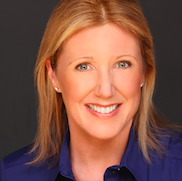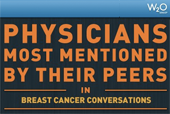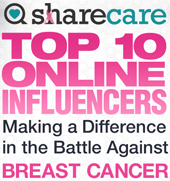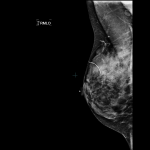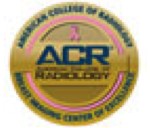Latest Post in the Atlantic
February 16th, 2012Be sure to check out my full post in the Atlantic for some strategies for avoiding breast cancer.
I wear my seatbelt, get my flu shot, wash and sanitize my hands, wear sunscreen, scrub the fruits and veggies clean, look both ways when I cross the street, and never take candy from strangers. But what can I do to protect myself (and my family) from the single most common cause of death among women in my own age group, 35 to 50 years old? Here are a few evidence-based strategies to increase your odds of avoiding advanced breast cancer.…
Read MoreFeatured Expert for Talk About Health Forum
February 9th, 2012I was asked to serve as the expert this week for Talk About Health‘s online forum. Follow the link for my answers to questions regarding early detection, lowering risk for breast cancer, needle biopsies, preparing for a mammogram and more.…
Read MoreDiagnosed with Breast Cancer at Age 29, Lori Kennedy Shares Her Story 20 Years Later
November 21st, 2011Looking at her today, you’d never guess that my mom friend Lori Kennedy had been through the gauntlet of breast cancer diagnosis and treatment at the age of 29. A mutual friend introduced us several years ago, and after Lori learned that my field is breast imaging, she mentioned that she’d had breast cancer years before. I was intrigued by her story, and thought it would be helpful to share in “The Breast Diaries.”
The Shock of Diagnosis
In April of 1992 Lori was 29 years old, living the single life in Hoboken and working successfully in sales. She had been dating a man…
Read MoreResponse to NY Times article: Mammogram’s Role as Savior Is Tested
November 2nd, 2011Tara Parker-Pope’s recent article in the New York Times Science Section discounts the role of mammography as an essential tool in the quest to save women from premature death due to breast cancer. She reports on the conclusion drawn by researchers Welch and Frankel from Dartmouth, who published a statistical analysis using epidemiologic data and computer software in this article in Archives of Internal Medicine this month. Their conclusion: “Most women with screen-detected breast cancer have not had their life saved by screening. They are instead either…
Read MorePersistent Patient Prevails Against Insurance Company
September 26th, 2011This 49-year-old woman had cancer in her left breast a few years ago, and was treated with a left lumpectomy and radiation therapy. Worried that the cancer would come back and be found too late in her dense breasts, she’d heard about breast MRI in her survivors’ support group, and decided to ask her doctor to send her for one. Her doctor agreed, and gave her a prescription for the test. But her insurance company didn’t approve it, even though her doctor ordered it.
The insurance clerk she spoke with after she was notified of the denial told her she didn’t need to have the MRI…
Read MoreHow Do I Know If I’m High Risk?
September 16th, 2011If any of the following risk factors apply to you, you might be at high risk. Talk to your doctor:
- Do you have a family history of breast cancer (both your mother and your father’s sides count!)? The highest risk is if you have a mother, sister, daughter, father, brother or son with breast cancer. But other relatives– grandparents, aunts, cousins– are important to consider as well.
- Have you had breast cancer yourself in the past? If so, you have 10x the risk of the average woman for developing a new cancer.
- Do you have dense breasts? (“What Breast Density
Case Example: Self-Examination Saved Her
September 16th, 2011As follow-up to my last post regarding breast self-examination, I offer a real case example:
A 39-year-old mom with no family history of breast cancer felt a lump in her right breast when she was doing a self-examination. Her mammogram pictures show dense breast tissue. A triangular-shaped sticker (you can see the triangle on the RMLO and RCC films) has been put on the lump. At that site on the mammogram, there is an irregular mass best seen on the magnified view RMML (yellow arrow) that demonstrates “spiculated margins”- a radiology term for badness. The mass…
Read MoreDon’t Be Shy
September 16th, 2011Breast self-examination (BSE) is one of our key weapons in the arsenal to detect breast cancer as early as possible. It only takes a few minutes a month, yet a woman can potentially save her own life by taking the time to do it. For reasons that have nothing to do with science or common sense, the government panel known as the U.S. Preventive Services Task Force, which did not include even one doctor specializing in breast cancer as a panelist, recommends AGAINST women doing self-examinations. See my take on this HERE.
BSE is especially important if you are younger…
Read MoreControversy Over Part Time Doctors
September 16th, 2011Karen Sibert’s recent op-ed in the New York Times has resulted in a heated discussion over physicians who choose to work part-time. I submitted the following letter to the editor in response:
Karen Sibert offers a disturbing value judgment on doctors practicing part-time. As a radiologist and a mother of two, my personal decision to work fewer hours during a fraction of my career is no one’s business aside from my family and my employer. As to the claim that I owe something to the government because Medicare subsidized hospitals during my training,
Six Ways to Make a Mammogram More Tolerable
September 16th, 2011By now you’ve probably seen the internet jokes that compare the mammogram experience to having your breast squashed in a refrigerator door/ automatic garage/ etc. A few years back, I joined the club of women who have our annual mammograms, and I can’t say that I disagree with the imagery of the jokes; however, the benefits of early detection FAR outweigh the discomfort (don’t you hate when doctors say that? It’s not “discomfort” or “a little pressure”— It HURTS!), so I’m willing to put up with it.
I’d like to share a few tips I’ve learned as both the doctor and…
Read More
